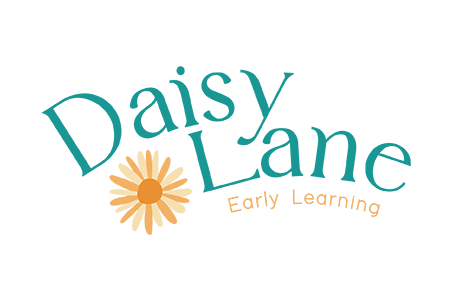When it comes to nurturing young children’s development, few elements are as powerful as a well-structured routine. At Daisy Lane Early Learning Centre, we understand that consistent, thoughtful routines form the backbone of effective nursery programs, providing children with the security and framework they need to thrive during their most formative years.
What Makes Routine So Important in Early Childhood?
Routine in nursery programs goes far beyond simply organising the day’s activities. It creates a predictable environment that allows young children to feel safe, secure, and ready to learn. For babies and toddlers who are still developing their understanding of the world, routine provides the stability necessary for healthy emotional, cognitive, and social development.
Research consistently shows that children who experience consistent routines in their early years demonstrate better emotional regulation, improved social skills, and enhanced learning outcomes. At Daisy Lane Early Learning Centre, our experienced early childhood educators have witnessed firsthand how structured routines transform anxious, uncertain children into confident, engaged learners.
The Science Behind Routine and Child Development
Brain Development and Predictability
During the first three years of life, a child’s brain undergoes rapid development, forming millions of neural connections. Predictable routines help organise these developing neural pathways, creating patterns that support learning and emotional stability. When children know what to expect, their brains can focus on growth and learning rather than constantly assessing for safety and security.
Stress Reduction and Emotional Security
Young children naturally experience anxiety when faced with uncertainty. Consistent nursery routines reduce cortisol (stress hormone) levels, creating an optimal environment for learning and development. At Daisy Lane Early Learning Centre, our childcare programs are designed to minimise stress while maximising opportunities for exploration and growth.
Building Independence and Confidence
When children understand the sequence of daily activities, they begin to anticipate what comes next, developing a sense of control and independence. This predictability allows them to participate more actively in their daily experiences, building confidence and self-efficacy.
Key Components of Effective Nursery Routines
Morning Arrival and Transition
The beginning of each day sets the tone for everything that follows. Our nursery programs at Daisy Lane Early Learning Centre include:
- Gentle welcome rituals: Consistent greeting procedures that help children transition from home to centre
- Settling activities: Calm, engaging activities that help children feel comfortable and ready to participate
- Family communication: Brief check-ins with parents to ensure continuity between home and centre environments
Structured Learning Blocks
Effective routines balance different types of activities throughout the day:
- Active play periods: Time for physical development and energy release
- Quiet learning activities: Focused activities that support cognitive development
- Creative expression: Art, music, and imaginative play opportunities
- Social interaction: Group activities that build communication and cooperation skills
Meal and Snack Times
Regular meal times do more than address nutritional needs – they provide opportunities for:
- Social skill development: Learning table manners and conversation skills
- Independence building: Self-feeding and cleanup responsibilities
- Cultural awareness: Exposure to diverse foods and eating customs
- Routine reinforcement: Predictable timing that supports overall daily structure
Rest and Quiet Time
Even children who don’t nap benefit from scheduled quiet periods that:
- Support emotional regulation: Time to process experiences and emotions
- Prevent overstimulation: Breaks from social and sensory input
- Encourage self-soothing: Development of independent calming strategies
- Prepare for afternoon activities: Mental and physical reset for continued learning
Age-Appropriate Routine Considerations
Infants (6 weeks – 12 months)
Baby routines focus primarily on meeting basic needs while introducing gentle structure:
- Flexible feeding schedules: Responding to individual hunger and sleep cues
- Sensory exploration: Routine tummy time, gentle play, and environmental interaction
- Caregiver bonding: Consistent primary caregivers who understand each child’s unique needs
- Communication development: Regular talking, singing, and reading activities
Toddlers (12 months – 3 years)
Toddler routines become more structured while maintaining flexibility for individual needs:
- Increased independence: Opportunities to participate in routine activities
- Social skill practice: Group activities with clear expectations and guidance
- Emotional regulation support: Consistent responses to big feelings and challenging behaviours
- Learning through play: Structured play experiences that support developmental milestones
The Role of Flexibility Within Structure
While consistency is crucial, effective nursery routines also incorporate appropriate flexibility. At Daisy Lane Early Learning Centre, our qualified early childhood educators understand when to maintain structure and when to adapt to meet individual or group needs.
Individualized Approaches
Every child is unique, and effective routines acknowledge these differences:
- Different energy levels: Some children need more active time, others benefit from additional quiet periods
- Varying attention spans: Activities are adapted to match developmental capabilities
- Cultural considerations: Routines respect diverse family practices and values
- Special needs accommodation: Modifications to support children with additional requirements
Seasonal and Developmental Adjustments
Routines evolve to reflect:
- Changing developmental needs: As children grow, routines adapt to support new skills
- Seasonal activities: Incorporating weather-appropriate and seasonal learning opportunities
- Group dynamics: Adjusting based on the needs and interests of the current group
- Family feedback: Incorporating parent input and observations from home
Supporting Routine Implementation at Home
Consistency between nursery and home environments amplifies the benefits of routine. Daisy Lane Early Learning Centre works closely with families to:
Share Routine Information
- Daily communication: Updates about how children responded to routine activities
- Transition strategies: Suggestions for maintaining routine elements at home
- Consistency coordination: Aligning key routine elements between home and centre
- Problem-solving support: Collaborative approaches to routine challenges
Provide Family Resources
- Routine development guides: Information about age-appropriate routine elements
- Transition tips: Strategies for major routine changes (new baby, moving, etc.)
- Weekend routine ideas: Suggestions for maintaining structure during days at home
- Holiday consistency: Approaches for maintaining routine during breaks and vacations
Common Routine Challenges and Solutions
Separation Anxiety
Even with established routines, some children struggle with transitions:
- Extended goodbye rituals: Allowing adequate time for family departures
- Comfort objects: Incorporating transitional items that provide security
- Consistent caregiver presence: Ensuring familiar educators are available during difficult transitions
- Gradual adjustment periods: Allowing time for new children to adapt to routine expectations
Resistance to Activities
When children resist routine activities, we:
- Examine underlying needs: Understanding whether resistance indicates tiredness, hunger, or other needs
- Offer limited choices: Providing control within routine structure
- Modify approaches: Adjusting activity presentation while maintaining routine timing
- Collaborate with families: Working together to understand and address resistance patterns
The Long-Term Benefits of Nursery Routines
Children who experience consistent, nurturing routines in their nursery years develop:
Academic Readiness
- Attention span development: Ability to focus during structured activities
- Following directions: Understanding and responding to multi-step instructions
- Time concepts: Beginning awareness of sequence and duration
- Learning habits: Positive associations with structured learning experiences
Social and Emotional Skills
- Self-regulation: Ability to manage emotions and behavior in group settings
- Cooperation: Understanding of group expectations and collaborative behavior
- Empathy development: Recognition of others’ needs within routine structures
- Conflict resolution: Skills for navigating social challenges within familiar frameworks
Life Skills
- Independence: Confidence in managing personal needs and responsibilities
- Organisation: Understanding of order and sequence in daily activities
- Adaptability: Comfort with structure while maintaining flexibility
- Self-advocacy: Ability to communicate needs within routine frameworks
Quality Indicators of Effective Routine Programs
When evaluating nursery programs, parents should look for:
Educator Expertise
- Qualified early childhood educators: Staff with appropriate training and experience
- Ongoing professional development: Commitment to staying current with best practices
- Child development knowledge: Understanding of age-appropriate expectations and methods
- Family partnership skills: Ability to collaborate effectively with parents and caregivers
Program Structure
- Clear daily schedules: Well-organised routines that balance different activity types
- Individual adaptation: Flexibility to meet diverse needs within a consistent structure
- Developmental appropriateness: Routines that match children’s capabilities and interests
- Smooth transitions: Effective strategies for moving between activities and environments
Creating Successful Routine Partnerships
At Daisy Lane Early Learning Centre, we believe that the most effective routines result from strong partnerships between educators and families. This collaboration ensures:
Consistent Expectations
When home and nursery environments share similar routine elements, children experience:
- Reduced anxiety: Familiar patterns across different settings
- Faster adaptation: Quicker adjustment to nursery routines
- Reinforced learning: Consistent messages about expectations and behavior
- Enhanced security: Predictability that supports emotional development
Shared Goals and Values
Effective partnerships involve:
- Open communication: Regular discussion about routine effectiveness and challenges
- Mutual respect: Acknowledgment of both family and educator expertise
- Flexible collaboration: Willingness to adjust approaches based on child’s needs
- Continuous improvement: Ongoing evaluation and refinement of routine elements
Conclusion
Understanding the importance of routine in nursery programs is essential for supporting young children’s development, security, and learning readiness. At Daisy Lane Early Learning Centre, our commitment to thoughtful, consistent routines creates the foundation for lifelong learning and emotional wellbeing.
Effective nursery routines provide children with the security they need to explore, learn, and grow while building essential skills for future success. Through careful planning, skilled implementation, and strong family partnerships, we create environments where every child can thrive.
The investment in quality routine-based nursery programs pays dividends throughout a child’s educational journey and beyond. When children feel secure and supported through consistent, nurturing routines, they develop the confidence and skills necessary to embrace new challenges and opportunities.
Ready to see how structured, nurturing routines can support your child's development?
We invite you to experience the Daisy Lane Early Learning Centre difference firsthand. Our expert early childhood educators would love to show you how our thoughtfully designed nursery programs create the perfect foundation for your child’s growth and learning.
Discover the power of routine in early childhood development – visit our centre today.
📍 Visit our centre: https://daisylaneearlylearning.com.au/
At Daisy Lane Early Learning Centre, we understand that great beginnings create bright futures. Let us partner with you in providing the routine, security, and expert care your child deserves.






